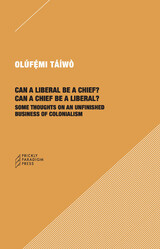19 start with R start with R

A meditation on the lessons to be learned from South Africa’s transformation in the wake of apartheid
Justice, truth, and identity; race, society, and law—all come into dramatic play as South Africa makes the tumultuous transition to a post-apartheid democracy. Seeking the timeless through the timely and trying to find the deeper meaning in the sweep of events, Daniel Herwitz brings the vast resources of the philosophical essay to bear on the new realities of post-apartheid South Africa—from racial identity to truth commissions, from architecture to film and television.
A public intellectual’s reflections on public life, Herwitz’s essays question how the new South Africa has constructed its concepts of reconciliation and return and how its historical emergence has meant a rethinking, reimagining, reexperiencing, relabeling, and repoliticizing of race. Herwitz’s purpose is to give a philosophical reading of society—a society already relying on implicitly philosophical concepts in its social and political agendas. Working through these concepts, testing their relevance for reading society, his book itself becomes a part of the politics of definition and description in the new South Africa.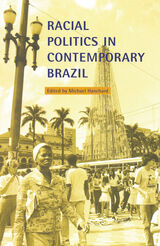
The contributors to Racial Politics in Contemporary Brazil examine such topics as the legacy of slavery and its abolition, the historical impact of social movements, race-related violence, and the role of Afro-Brazilian activists in negotiating the cultural politics surrounding the issue of Brazilian national identity. These essays also provide comparisons of racial discrimination in the United States and Brazil, as well as an analysis of residential segregation in urban centers and its affect on the mobilization of blacks and browns. With a focus on racialized constructions of class and gender and
sexuality, Racial Politics in Contemporary Brazil reorients the direction of Brazilian studies, providing new insights into Brazilian culture, politics, and race relations.
This volume will be of importance to a wide cross section of scholars engaged with Brazil in particular, and Latin American studies in general. It will also appeal to those invested in the larger issues of political and social movements centered on the issue of race.
Contributors. Benedita da Silva, Nelson do Valle Silva, Ivanir dos Santos, Richard Graham, Michael Hanchard, Carlos Hasenbalg, Peggy A. Lovell, Michael Mitchell, Tereza Santos, Edward Telles, Howard Winant

From the Republican Party's "Southern Strategy" in the U.S. to the rise of Le Pen's National Front in France, conservative politicians in the last thirty years have capitalized on voters' resentment of ethnic minorities to win votes and undermine government aid to the poor. In this book, the authors construct a theoretical model to calculate the effect of voters' attitudes about race and immigration on political parties' stances on income distribution.
Drawing on empirical data from the U.S., Britain, Denmark, and France, they use their model to show how parties choose their platforms and compete for votes. They find that the Right is able to push fiscal policies that hurt working and middle class citizens by attracting voters who may be liberal on economic issues but who hold conservative views on race or immigration. The authors estimate that if all voters held non-racist views, liberal and conservative parties alike would have proposed levels of redistribution 10 to 20 percent higher than they did. Combining historical analysis and empirical rigor with major theoretical advances, the book yields fascinating insights into how politicians exploit social issues to advance their economic agenda.

The Chinese Communist welfare state was established with the goal of eradicating income inequality. But paradoxically, it actually widened the income gap, undermining one of the most important objectives of Mao Zedong’s revolution. Nara Dillon traces the origins of the Chinese welfare state from the 1940s through the 1960s, when such inequalities emerged and were institutionalized, to uncover the reasons why the state failed to achieve this goal.
Using newly available archival sources, Dillon focuses on the contradictory role played by labor in the development of the Chinese welfare state. At first, the mobilization of labor helped found a welfare state, but soon labor’s privileges turned into obstacles to the expansion of welfare to cover more of the poor. Under the tight economic constraints of the time, small, temporary differences evolved into large, entrenched inequalities. Placing these developments in the context of the globalization of the welfare state, Dillon focuses on the mismatch between welfare policies originally designed for European economies and the very different conditions found in revolutionary China. Because most developing countries faced similar constraints, the Chinese case provides insight into the development of narrow, unequal welfare states across much of the developing world in the postwar period.
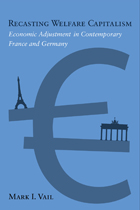
Vail finds that these respective evolutions involve interrelated changes in social and economic policies and are characterized by political relationships that are continuously renegotiated—often in unpredictable ways. In the process, he presents a compelling reconceptualization of change in both the welfare state and the broader political economy during an age of globalization.
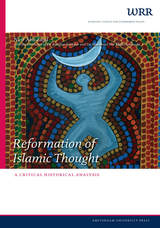
Reformation of Islamic Thought explores the writings of intellectuals from Egypt to Iran to Indonesia, probing their efforts to expand Islam beyond traditional and legalistic interpretations. Zayd reveals that many Muslim thinkers advocate culturally enlightened Islam with an emphasis on individual faith. He then investigates the extent of these Muslim reformers’ success in generating an authentic renewal of Islamic ideology, asking if such thinkers have escaped the traditionalist trap of presenting a negative image to the West.
A fascinating and highly relevant study for our times, Reformation of Islamic Thought is an essential analysis of Islam’s present and future.

Wilson begins by tracing the arrival of American commerce and culture in the Pacific through missionary and imperial forces in the nineteenth century and the parallel development of Asia/Pacific as an idea. Using an impressive range of texts—from works by Herman Melville, James Michener, Maori and Western Samoan novelists, and Bamboo Ridge poets to Baywatch, films and musicals such as South Pacific and Blue Hawaii, and native Hawaiian shark god poetry—Wilson illustrates what it means for a space to be “regionalized.” Claiming that such places become more open to transnational flows of information, labor, finance, media, and global commodities, he explains how they then become isolated, their borders simultaneously crossed and fixed. In the case of Hawai’i, Wilson argues that culturally innovative, risky forms of symbol making and a broader—more global—vision of local plight are needed to counterbalance the racism and increasing imbalance of cultural capital and goods in the emerging postplantation and tourist-centered economy.
Reimagining the American Pacific leaves the reader with a new understanding of the complex interactions of global and local economies and cultures in a region that, since the 1970s, has been a leading trading partner of the United States. It is an engaging and provocative contribution to the fields of Asian and American studies, as well as those of cultural studies and theory, literary criticism, and popular culture.
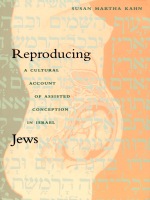
In this ethnographic study of the new reproductive technologies in Israel, Susan Martha Kahn explores the cultural meanings and contemporary rabbinic responses to artificial insemination, in-vitro fertilization, egg donation, and surrogacy. Kahn draws on fieldwork with unmarried Israeli women who are using state-subsidized artificial insemination to get pregnant and on participant-observation in Israeli fertility clinics. Through close readings of traditional Jewish texts and careful analysis of Israeli public discourse, she explains how the Israeli embrace of new reproductive technologies has made Jewish beliefs about kinship startlingly literal. Kahn also reveals how a wide range of contemporary Israelis are using new reproductive technologies to realize their reproductive futures, from ultraorthodox infertile married couples to secular unmarried women.
As the first scholarly account of assisted conception in Israel, this multisited ethnography will contribute to current anthropological debates on kinship studies. It will also interest those involved with Jewish studies.

Aurelio Lippo Brandolini’s Republics and Kingdoms Compared is the most fascinating and least-known work of humanist political theory before Machiavelli. A Socratic dialogue set in the court of King Mattias Corvinus of Hungary (ca. 1490), the work depicts a debate between the king himself and a Florentine merchant at his court on the relative merits of republics and kingdoms.
In effect a searing critique of Florentine civic humanism, the work discusses such issues as free trade and the morality of commerce, the inequalities of wealth typical of republics, the nature of freedom and justice, the reasons for the rise and fall of empires, the causes of political corruption, and the conditions necessary for the flourishing of arts, letters, and culture generally. This is the first critical edition and the first translation into any language.
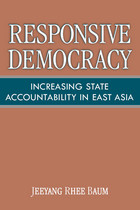
"Responsive Democracy is a pioneering contribution to the political analysis of administrative law in East Asia. Both political scientists and legal academics will greatly benefit from the author's in-depth analysis of the intersection between presidential power and administrative law in the contrasting cases of South Korea, Taiwan, and the Philippines."
---Susan Rose-Ackerman, Yale University Law School
"Baum's book is a very significant contribution because it focuses on a part of the world that has often been neglected in studies of democratization. It focuses attention on the nuts and bolts of what we mean by democratic consolidation and responsiveness. Indeed, if more political science were written with this clarity, we would all enjoy reading the literature much more!"
---Joseph Fewsmith, Boston University
Under what conditions is a newly democratic government likely to increase transparency, accountability, and responsiveness to its citizens? What incentives might there be for bureaucrats, including those appointed by a previously authoritarian government, to carry out the wishes of an emerging democratic regime? Responsive Democracy addresses an important problem in democratic transition and consolidation: the ability of the chief executive to control the state bureaucracy.
Using three well-chosen case studies---the Philippines, South Korea, and Taiwan---Jeeyang Rhee Baum explores the causes and consequences of codifying rules and procedures in a newly democratic government. In the Philippines, a president facing opposition has the option of appointing and dismissing officials at will and, therefore, has no need for administrative procedure acts. However, in South Korea and Taiwan, presidents employ such legislation to rein in recalcitrant government agencies, and, as a consequence, increase transparency, accountability, and responsiveness. Moreover, as Baum demonstrates by drawing upon surveys conducted both before and after implementation, administrative procedural reforms in South Korea and Taiwan improved public confidence in and attitudes toward democratic institutions.
Jeeyang Rhee Baum is a Research Fellow at the Ash Center for Democratic Governance and Innovation, John F. Kennedy School of Government, Harvard University.
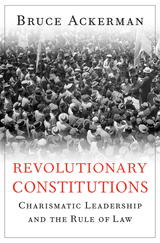
A robust defense of democratic populism by one of America’s most renowned and controversial constitutional scholars—the award-winning author of We the People.
Populism is a threat to the democratic world, fuel for demagogues and reactionary crowds—or so its critics would have us believe. But in his award-winning trilogy We the People, Bruce Ackerman showed that Americans have repeatedly rejected this view. Now he draws on a quarter century of scholarship in this essential and surprising inquiry into the origins, successes, and threats to revolutionary constitutionalism around the world. He takes us to India, South Africa, Italy, France, Poland, Burma, Israel, and Iran and provides a blow-by-blow account of the tribulations that confronted popular movements in their insurgent campaigns for constitutional democracy. Despite their many differences, populist leaders such as Nehru, Mandela, and de Gaulle encountered similar dilemmas at critical turning points, and each managed something overlooked but essential. Rather than deploy their charismatic leadership to retain power, they instead used it to confer legitimacy to the citizens and institutions of constitutional democracy.
Ackerman returns to the United States in his last chapter to provide new insights into the Founders’ acts of constitutional statesmanship as they met very similar challenges to those confronting populist leaders today. In the age of Trump, the democratic system of checks and balances will not survive unless ordinary citizens rally to its defense. Revolutionary Constitutions shows how activists can learn from their predecessors’ successes and profit from their mistakes, and sets up Ackerman’s next volume, which will address how elites and insiders co-opt and destroy the momentum of revolutionary movements.

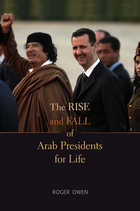
The monarchical presidential regimes that prevailed in the Arab world for so long looked as though they would last indefinitely—until events in Tunisia and Egypt made clear their time was up. The Rise and Fall of Arab Presidents for Life exposes for the first time the origins and dynamics of a governmental system that largely defined the Arab Middle East in the twentieth century.
Presidents who rule for life have been a feature of the Arab world since independence. In the 1980s their regimes increasingly resembled monarchies as presidents took up residence in palaces and made every effort to ensure their sons would succeed them. Roger Owen explores the main features of the prototypical Arab monarchical regime: its household; its inner circle of corrupt cronies; and its attempts to create a popular legitimacy based on economic success, a manipulated constitution, managed elections, and information suppression.
Why has the Arab world suffered such a concentration of permanent presidential government? Though post-Soviet Central Asia has also known monarchical presidencies, Owen argues that a significant reason is the “Arab demonstration effect,” whereby close ties across the Arab world have enabled ruling families to share management strategies and assistance. But this effect also explains why these presidencies all came under the same pressure to reform or go. Owen discusses the huge popular opposition the presidential systems engendered during the Arab Spring, and the political change that ensued, while also delineating the challenges the Arab revolutions face across the Middle East and North Africa.
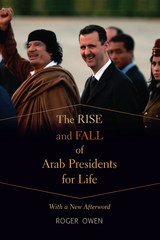
The monarchical presidential regimes that prevailed in the Arab world for so long looked as though they would last indefinitely—until events in Tunisia and Egypt made clear their time was up. The Rise and Fall of Arab Presidents for Life exposes for the first time the origins and dynamics of a governmental system that largely defined the Arab Middle East in the twentieth century.
Presidents who rule for life have been a feature of the Arab world since independence. In the 1980s their regimes increasingly resembled monarchies as presidents took up residence in palaces and made every effort to ensure their sons would succeed them. Roger Owen explores the main features of the prototypical Arab monarchical regime: its household; its inner circle of corrupt cronies; and its attempts to create a popular legitimacy based on economic success, a manipulated constitution, managed elections, and information suppression.
Why has the Arab world suffered such a concentration of permanent presidential government? Though post-Soviet Central Asia has also known monarchical presidencies, Owen argues that a significant reason is the “Arab demonstration effect,” whereby close ties across the Arab world have enabled ruling families to share management strategies and assistance. But this effect also explains why these presidencies all came under the same pressure to reform or go. Owen discusses the huge popular opposition the presidential systems engendered during the Arab Spring, and the political change that ensued, while also delineating the challenges the Arab revolutions face across the Middle East and North Africa.
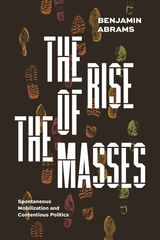
Between 15 and 26 million Americans participated in protests surrounding the murders of George Floyd, Ahmaud Arbery, Breonna Taylor, and others as part of the Black Lives Matter protests in 2020, which is only one of the most recent examples of an immense mobilization of citizens around a cause. In The Rise of the Masses, sociologist Benjamin Abrams addresses why and how people spontaneously protest, riot, and revolt en masse. While most uprisings of such a scale require tremendous resources and organizing, this book focuses on cases where people with no connection to organized movements take to the streets, largely of their own accord. Looking to the Arab Spring, Occupy Wall Street, and the Black Lives Uprising, as well as the historical case of the French Revolution, Abrams lays out a theory of how and why massive mobilizations arise without the large-scale planning that usually goes into staging protests.
Analyzing a breadth of historical and regional cases that provide insight into mass collective behavior, Abrams draws on first-person interviews and archival sources to argue that people organically mobilize when a movement speaks to their pre-existing dispositions and when structural and social conditions make it easier to get involved—what Abrams terms affinity-convergence theory. Shedding a light on the drivers behind large spontaneous protests, The Rise of the Masses offers a significant theory that could help predict movements to come.
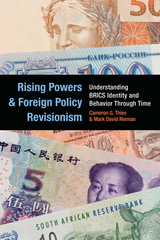
State identity is investigated qualitatively through the use of role theory and the identification of national role conceptions. Both economic and militarized conflict behavior are examined using Bayesian change-point modeling, which identifies structural breaks in time series data, revealing potential wholesale revision of foreign policy. Using this innovative approach to show that the behavior of rising powers is governed not simply by the structural dynamics of power but also by the roles that these rising powers define for themselves, they assert that this process will likely lead to a much more evolutionary approach to foreign policy and will not necessarily generate international conflict.
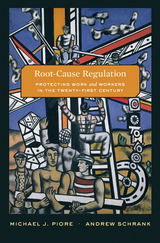
Work is now more deadly than war, killing approximately 2.3 million people a year worldwide. The United States, with its complex regulatory system, has one of the highest rates of occupational fatality in the developed world, and deteriorating working conditions more generally. Why, after a century of reform, are U.S. workers growing less safe and secure? Comparing U.S. regulatory practices to their European and Latin American counterparts, Root-Cause Regulation provides insight into the causes of this downward trend and ways to reverse it, offering lessons for rich and poor countries alike.
The United States assigns responsibility for wages and hours, collective bargaining, occupational safety, and the like to various regulatory agencies. In France, Spain, and their former colonies, a single agency regulates all firms. Drawing on history, sociology, and economics, Michael Piore and Andrew Schrank examine why these systems developed differently and how they have adapted to changing conditions over time. The U.S. model was designed for the inspection of mass production enterprises by inflexible specialists and is ill-suited to the decentralized and destabilized employment of today. In the Franco-Iberian system, by contrast, the holistic perspective of multitasking generalists illuminates the root causes of noncompliance—which often lie in outdated techniques and technologies—and offers flexibility to tailor enforcement to different firms and market conditions.
The organization of regulatory agencies thus represents a powerful tool. Getting it right, the authors argue, makes regulation not the job-killer of neoliberal theory but a generative force for both workers and employers.


Sivachev and Yakolev trace the course of the U.S.-Russian relations from the years preceding the American Revolution to the 1970s, when human rights issues began to cause friction. Those relations, the authors believe, were characterized by America's repeated failure to take advantage of opportunities to improve them. Recognizing the controversial nature of the book, Sivachev said in an interview with the New York Times: "We did not set out to please the American reader, nor did the University of Chicago Press ask us to. On the contrary, they recommended that we should feel free to present our own views."
"Scholars and students of American foreign policy . . . are likely to be alternatively interested, intrigued, angered, and sometimes illuminated by some of the interpretations found in this work."—Perspective
"An American reader should not prejudge this book as simply another dreary contribution to the rhetoric of Soviet propaganda. It is more than this. The book is an expression of a view of the world that is truly and strikingly different from an American one and it is important to understand that it is a theory of reality that is shared by most, if not all, Soviet intellectuals who study America and its foreign policy. It is not enough simply to establish the inaccuracies and misrepresentations contained in such a view. One must go further and understand that such a view of reality is sincerely deeply held and that it is a part of a larger belief system that gives the authors' scholarly work coherence and meaning."—Boston Sunday Globe
READERS
Browse our collection.
PUBLISHERS
See BiblioVault's publisher services.
STUDENT SERVICES
Files for college accessibility offices.
UChicago Accessibility Resources
home | accessibility | search | about | contact us
BiblioVault ® 2001 - 2024
The University of Chicago Press






